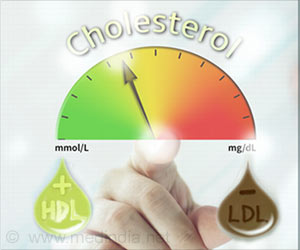A new study led by Joslin Diabetes Center has identified a protein in fat cells that may be instrumental in the production and storage of fat, offering a new target for treatments
A new study led by Joslin Diabetes Center has identified a protein in fat cells that may be instrumental in the production and storage of fat, offering a new target for treatments to prevent obesity and reduce the risk for type 2 diabetes.
Published in the journal Cell Metabolism, the study examined the role of a protein called Sirt2, a member of the sirtuin family of seven cellular proteins, which play a role in the control of aging and metabolism.The researchers found that Sirt2 is the most abundant of the sirtuins in fat cells, expressed in quantities five to ten times higher than other sirtuin proteins.
"We wanted to find out what would happen to the behavior of fat cells--in terms of metabolism or growth--if we changed the levels of Sirt2," said lead investigator Dr. C. Ronald Kahn, the head of the Joslin section on Obesity and Hormone Action and the Mary K. Iacocca Professor of Medicine at Harvard Medical School.
When a person gains weight, cells in connective tissue known as pre-adipocytes differentiate and fill with fat and form adipocytes, which are able to store fat as a potential energy source when food is not available. However, too much fat storage leads to obesity and obesity-related diseases, including type 2 diabetes.
The Joslin researchers were able to manipulate Sirt2 levels in adipocytes by using genetically altered cells from mice. They found that increasing the protein's levels in the cell blocked the cell's ability to undergo differentiation and store fat, while reducing it promoted fat production.
"So, to reduce the amount of fat in the body and help people stay thin, we need to find an activator of Sirt2," said Dr. Kahn.
Advertisement
"Since most of the diabetes epidemic is driven by obesity, Sirt2 may also play a role in preventing type 2 diabetes from developing and in treating people who have already developed the disease," said Dr. Kahn.
Advertisement
Source-ANI
LIN/J









